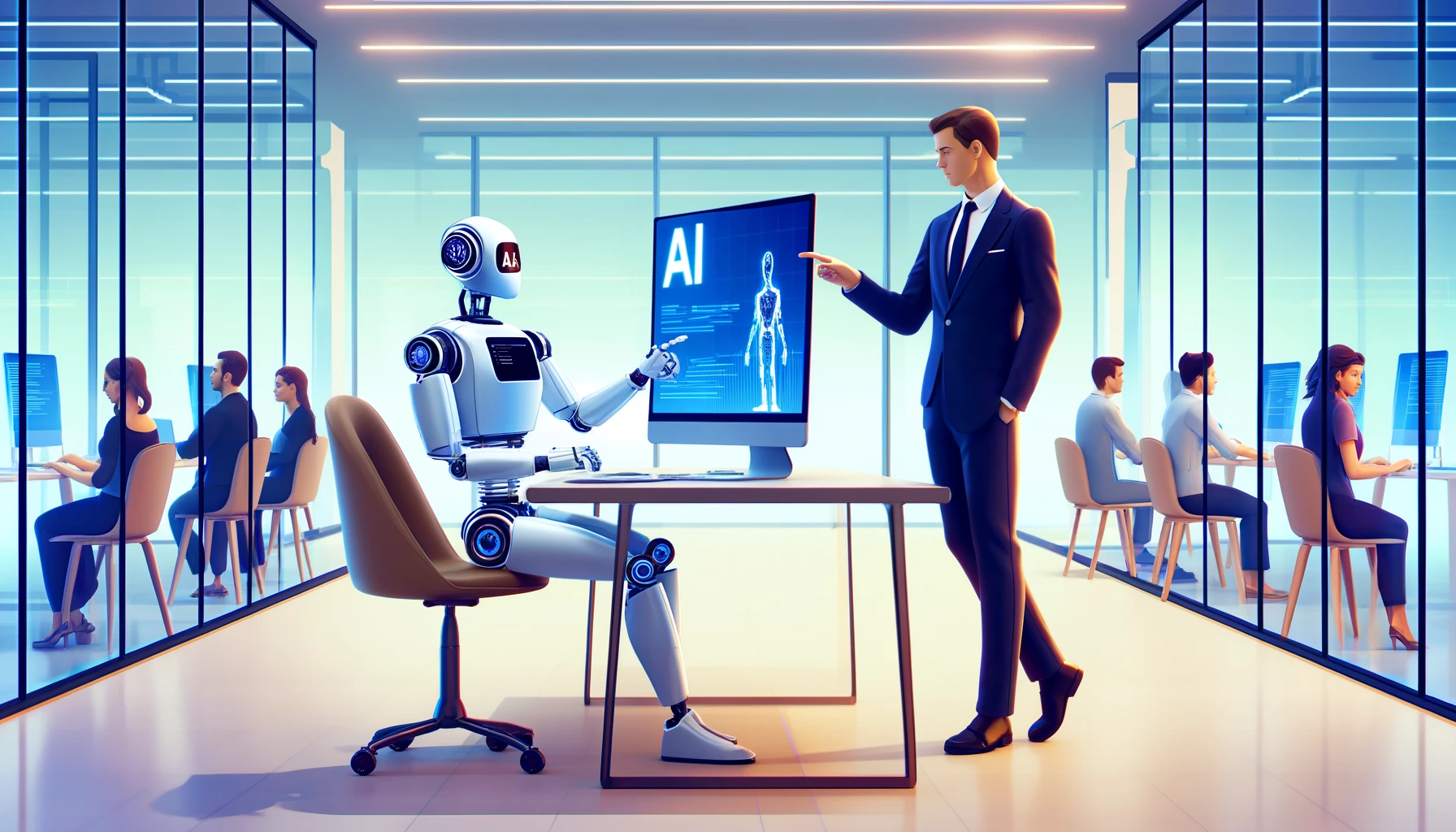Yes, it is official – Artificial Intelligence (AI) is not going to replace the workforce anytime soon. Well, not that AI itself has told us so, but research and studies at various organizations by diverse experts have shown that AI is still quite distant from making a large swathe of the human population jobless. Wondering why so? The answer is here…
Numerous societal, financial, cultural, ethical, and operational factors still make AI an inferior option to humans in the workplace.
Predictions about job losses are rife
There has been no shortage of predictions, rumours, and hypotheses about how AI will impact the employability of people, in general. Economists at Goldman Sachs had predicted in 2023 that generative AI would impact 300 million full-time jobs globally. Moreover, 75 percent of enterprises that were surveyed for the Future of Jobs Report by the World Economic Forum anticipated implementation of AI that could result in high churn – while 50 percent of enterprises expected job growth, another 25 percent predicted job losses. This translates to a loss of 85 million jobs worldwide, while adding 97 million new jobs by 2025. The same report also claimed that while machines completed 34 percent of tasks globally in 2022, machines will be responsible for completing 43 percent of tasks by 2027. Another report by Challenger, Gray & Christmas said in 2023 that AI had been responsible for over 4,000 job losses in September 2023 because of the growing interest of organizations in reducing workload using AI. Moreover, IBM has predicted that by 2026, AI and automation will compel 40 percent of the workforce to upskill themselves.
Such are the predictions about AI replacing humans in jobs that a panic has set in the employment sector, sending jitters among the working professionals.
But is AI indeed going to make a vast swathe of the employed population jobless? Are we going to be left without a job to do?
Alternate research says “No’.
Jobs may not abandon us so soon
The researchers at the Massachusetts Institute of Technology (MIT) have recently discovered that AI may not turn into as evil an entity as we assume it to be. The working paper by MIT-CSAIL “Beyond AI Exposure: Which Tasks are Cost-Effective to Automate with Computer Vision?” says that only 23 percent of wages linked to vision-related tasks could be effectively and viably replaced by AI. MIT researchers claim that though AI can augment workers in a large number of work areas, not all the use cases of AI make financial sense. The economic viability of AI solutions is still low compared to the cost of human labour, and the massive upfront costs of AI implementation would still deter companies from investing in AI to replace their human workforce. The report claims that even with 20 percent cost reduction each year, it will be decades before we find AI taking up computer vision related tasks with economic efficiency.
Not all AI solutions that can replace humans in jobs can do so economically, which makes them financially unviable and therefore, not potent enough to kill the employment sector.
Besides the money game, AI systems have another hurdle to navigate – Societal Acceptability. Not all industries and professions may integrate AI so readily as we expect them to do. Because the ethical, cultural and operational concerns that exist around AI may noy favour the idea of quick adoption. If you are wondering why that can be a problem, we need to understand that social factor of a technology is often largely neglected in projections about the disruption that a technology can bring. The lack of a technique to quantify the societal and cultural aspects leads to erroneous forecasts about the impact of a technology on the society. Therefore, if we have to calculate the total qualitative and quantitative cost of AI deployment, it will make sense to use AI only the average cost to perform a task by humans exceeds the average cost to perform the same task by machines.
Will you be replaced?
Depends on how technology would shape up in the coming few years. If Sam Altmann from Open AI is to be believed, AI is on the course to bringing a massive disruption in the job market. Many experts are fearful of the mass scale unemployment that AI can bring, thereby disrupting the economy of countries. However, some other experts believe that such concerns around new technology are not being seen for the first time. People were scared of the onset of computers, thinking that they would make employment obsolete in multiple industries. Well, we know it resulted in the creation of many more types of jobs that could not be imagined before advent of computers. Therefore, we must expect a similar scenario with AI, where it will only erode the operational and repetitive tasks, while boosting the need for creative people having originality of thought.
AI can augment the skills of professionals and free up their time to take care of the more important tasks that require application of brain, rather than simply wasting time on repetitive tasks.
Here’s what you can expect from Tomorrow?
The coming few years will hold testament of the impact that an entirely transformational technology can bring. It is very hard to say that AI will make a lot of people obsolete, though some jobs will certainly go extinct. What’s required of us is to be on our toes at all times, watch carefully the direction in which AI is going and take corrective measures either in AI development and/or upskilling, that can help us stay afloat once the disruptive tides of change sweep through the world.









